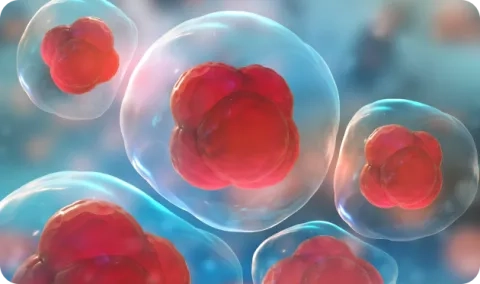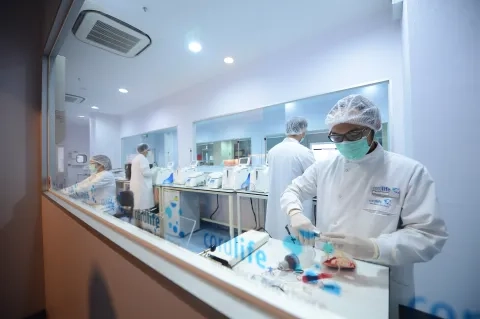Main navigation
Stem Cell Transplantation
This is done to reconstitute a patient's blood and immune system, following treatments such as chemotherapy or radiotherapy, which destroys blood cells.
The stem cells are infused directly into the patient's bloodstream, which migrate to the bone marrow. Inside the bone marrow environment, the stem cells begin differentiating into the three blood cell types - red blood, white blood and platelets. This initiates the regeneration of the patient's blood and immune system.
The first cord blood transplant was performed in 1988 in France, which successfully treated a 5-year old boy with Fanconi's Anaemia. To date there have been more than 30,000 cord blood stem cell transplants reported worldwide.1
Click here to read more about our successful transplant cases.
Cellular Therapies
Many newer applications are still undergoing development. In some cases, like spinal cord injury and heart attacks, the cells are directly injected into the damaged tissues. Some of the benefits experienced appear to be due to new blood vessel formation, which restores blood flow to damaged tissue.
As these treatments develop, we expect to see cord blood stem cells used in different ways. In some cases, the stem cells will be treated in the laboratory to make new cell types before use. In other cases, they will be delivered directly into the damaged tissue.
View video on "Cordlife's successful transplant to treat leukemia".
Source:
1. Ballen K., Gluckman E., Broxmeyer H. Umbilical cord blood transplantation: the first 25 years and beyond. Blood. 2013;122(4):491-498.
The future of stem cells

The list of stem cell treatable diseases continues to grow at a rapid pace. With the potential to become different cell types, scientists are exploring the possibility of using cord blood stem cells to treat some of the most common life-threatening diseases such as heart diseases and stroke.
Why save cord blood

Find out the benefits of saving cord blood. Umbilical cord stem cells can grow healthy blood cells faster than other types of stem cells obtained from other sources.
Stem cell therapy

You can protect your new-born’s future by preserving her stem cells safely, in a properly equipped cell bank. Research is underway on the prevention and treatment of various diseases / conditions using stem cells.



